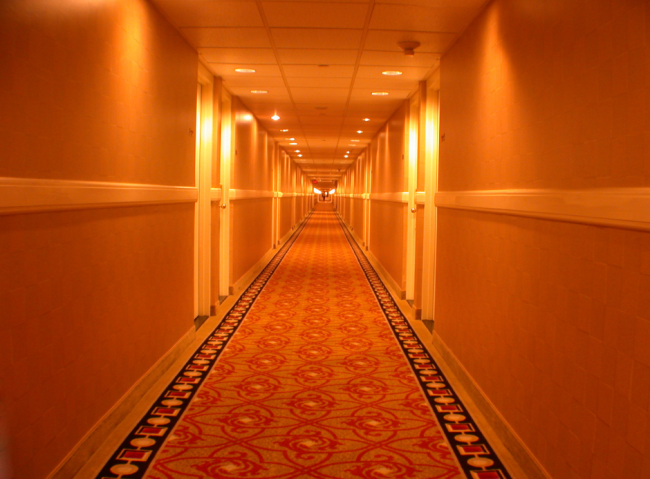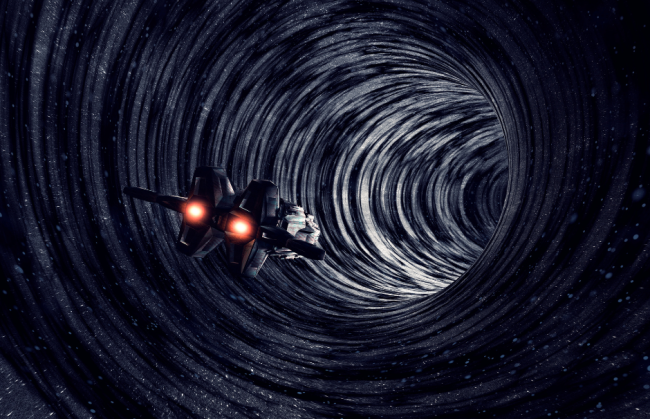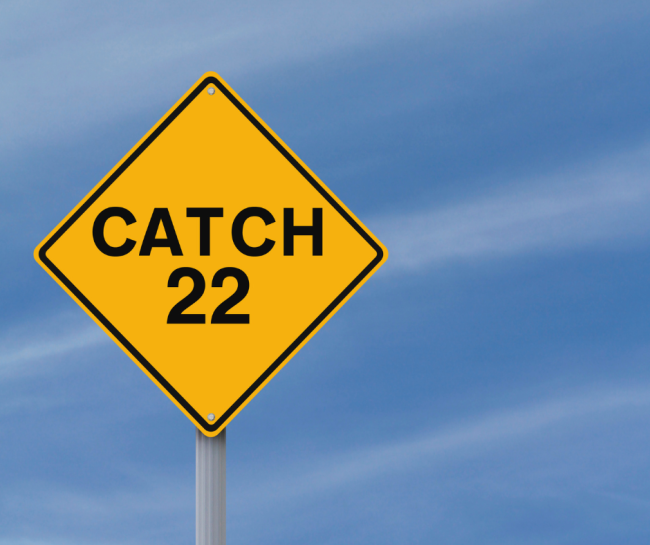9 Paradoxes So Confusing, You’ll Question Everything
We’ve been educated to see the universe in a very specific way. There’s black and white, night and day, truth and lies, dreams and reality. But really, is it that simple? Paradoxes say it’s not. Let’s try a quick test. Say this sentence out loud – “This statement is a lie”. Now, if the statement is indeed a lie, then it would be saying the truth. Confused? You should be.
These Paradoxes Will Challenge Everything You Think You Know
Paradoxes are situations that create two opposite but entirely possible outcomes; they challenge our understanding of reality and the universe and help us come to grips with how incomplete our logic really is. So, get ready to have your mind blown away!
1. The Grandfather Paradox
What if a man goes back in time before his parents were even born and kills his grandfather. If grandpa bites the dust young, then one of the time traveler’s parents wouldn’t exist, and neither would the time traveler. But wait, that would mean that there will be nobody to go back in time to murder the grandfather in the first place.
It’s a mind-bender that gets science nerds, philosophy buffs and fans of the “Back to the Future” talking. It’s the same as with the “going back in time to kill baby Hitler”. If you hop on your DeLorean and eliminate baby Fuhrer to prevent the rise of the Nazis, then you create a world where WWII didn’t occur, and thus you have no reason to travel back in time (assuming the Nazis atrocities were only Hitler’s doing).
Basically, if time travel is self-consistent, you can’t change the past. That’s why some folks came up with the idea of multiple parallel universes, where going back in time to kill Hitler would only create another universe without Hitler, but the old universe with Hitler in it, would still exist. You would just create another timeline.
2. The Observer’s Paradox
According to the Observer’s Paradox, the very act of observing someone’s behavior changes the behavior you’re trying to observe.
This paradox was first introduced by a chap named William Labov, a big name in the world of sociolinguistics. As a field worker tasked with gathering data on natural speech, William observed that when he tried to record and observe how people normally chatted, they would all start to adopt a more formal and restrained speech register.
The Hawthorne Works, a factory built by Western Electric, provided another example of this paradox. In the 1920s and 1930s, engineers were trying to determine if improving the lighting in the factory improved the workers’ efficiency. After the test, it looked like better lighting improved the workers’ efficiency, but then returning the lighting to its previous conditions also improved efficiency. So, it was just the observation of the factory workers in itself that caused the increased efficiency.
This might seem like common sense to you now, but it wasn’t for them at that time.
3. The Grand Hotel Paradox

Imagine a hotel with an infinite number of rooms. It’s like a never-ending hallway with doors on both sides – Room 1, Room 2, Room 3 – stretching into eternity.
Now, let’s say this hotel is full. Every room has a guest in it. So, what happens if one new guest arrives? In a normal hotel, they’d be out of luck, but in our fully-booked infinite Grand Hotel, the manager can simply move the guest in Room 1 to Room 2, the guest in Room 2 to Room 3 and so on. Basically every guest moves from Room X to Room X+1 infinitely and that frees up Room 1 for the new guest.
But what if 3000 more guests arrive? You move each existing guest from Room X to Room X+3000. This will create a block of 3000 consecutive empty rooms for the new guests.
Now let’s imagine an infinite number of new guests arriving. What would you do if you were the manager? Well, you would need to move the guest from Room 1 to Room 2, then the guest from Room 2 to Room 4, the guest from Room 3 to Room 6, the guest from Room 4 to Room 8, and so on. Basically, the guest occupying Room N will be moved to Room Nx2 (N times 2). And now all the odd-numbered rooms (which are infinite) will be free for the infinite number of guests coming in.
This paradox was introduced by David Hilbert, a German mathematician, to explain how infinity works in mathematics and philosophy. The concepts of “full” and “empty”, “more” and “less” work a little differently when dealing with infinity, as there are different types of infinities that can be mapped to one another. In philosophy, it challenges our understanding of the actual and potential infinite.
4. The Bootstrap Paradox

The Bootstrap Paradox is a temporal paradox, a logical contradiction associated with the idea of time travel and causality.
Let’s consider you are a young physicist passionate about Albert Einstein’s work. You have a time machine in your backyard and one day you decide to travel back in time and meet your idol. You travel way back though, when Albert Einstein was a very young man, and explain to him the theory of relativity that he hasn’t published yet. Einstein eventually writes up the theory and publishes it as his own.
Back to the present, you, the time traveler, learn the theory of relativity from Einstein’s paper. But wait, didn’t you tell Einstein about it when traveling back in time? See, that’s where the confusion starts.
In this situation, who actually comes up with the theory of relativity and when? Albert Einstein learned it from the time traveler. However, the time traveler comes from an era when the theory of relativity is a well-known and explained concept explained directly or indirectly by Einstein.
So, the bootstrap paradox is actually an information loop where cause and effect have no meaning anymore. It takes its name from the expression of “lifting oneself by their own bootstraps”.
5. The crocodile paradox
The crocodile paradox is a classic example of a logical dilemma that poses a situation with no clear solution because the premise is circular and self-contradictory. Here’s what we mean.
Imagine a crocodile who can talk has snatched a young boy. The crocodile, surprisingly articulate, promises to return the boy safely if the father can correctly predict what the crocodile will do next. If the prediction is wrong, the crocodile will simply keep the boy.
So, here’s how that goes. Let’s assume the father predicts that the crocodile will not return the boy. If the prediction is correct, then the crocodile should actually return the boy, rendering the father’s prediction incorrect.
If the prediction is incorrect, then the crocodile must keep the boy although he didn’t want to do that in the first place, rendering the father’s prediction correct.
Confusing, right? The crocodile paradox is a “self-referential” paradox with a statement that refers back to itself in a loop. It’s similar in nature to the “liar paradox” where a statement negates its own truthfulness (Eg. “This statement is false”).
These kinds of paradoxes challenge our understanding of truth, contradiction, and the limits of logical reasoning. They have deep implications in the way we structure arguments and link to underlying complexities in the worlds of mathematics or computer science.
6. The Raven Paradox

The Raven Paradox, also known as Hempel’s Paradox, is a philosophical puzzle that invites us to question the nature of evidence and logical implications. Here’s how it goes!
We have the statement – “All ravens are black”. It’s a simple statement which we tend to believe it’s correct, because we’ve already seen a couple of ravens in our lives and they were all black. So the more black ravens we see, the more we can say that “All ravens are black”.
Now, what about the statement – “All non-black things are not ravens”. It’s a standard logical equivalence. If you say all As are B, then all non-Bs are not As. But does it make sense in the real world? Observing a green apple would support the hypothesis that All non-black things are not ravens? From a logical standpoint, yes. But from a real-world common sense standpoint, no.
So the raven paradox does just that – challenges traditional logical and scientific thinking against the implications of the real world we live in. It raises the question about what counts as evidence in science. If observing a brown chair supports the idea that all ravens are black from a logical standpoint, then there’s gotta’ be something wrong with our logic.
The raven paradox is a great way to highlight the major differences between theoretical logical equivalence and practical life cases.
7. The Fermi paradox
Named after the famous physicist Enrico Fermi, the Fermi paradox deals with the apparent contradiction between the high probability of extraterrestrial life in the universe and the lack of evidence for it.
Given the billions of stars in the galaxy that resemble our sun, and the many Earth-like planets that orbit those suns, the galaxy should be teeming with alien civilizations. But everything seems silent, and that led Fermi to pose the question “Where is everybody?”. And this simple question highlights the core of the paradox.
As we were saying, the universe is vast, there are billions of stars and planets that could host some forms of life, more or less intelligent than us. From a pure statistical standpoint, life should exist somewhere else.
However, there is absolutely no concrete evidence for it. There are a few potential explanations for it, of course. Firstly, the universe is incredibly vast. Even if other intelligent life exists, the distance between us might be just too great for us to ever detect them. Secondly, the universe is also quite old. So it’s possible that other civilizations have existed, but not at the same time as us.
Fermi’s question has triggered lots of theories on extraterrestrial life. There’s the Rare Earth Hypothesis that suggests complex life is rare due to a multitude of specific environmental conditions required. And if there is life on other planets, it’s only at a microbial level. And the story goes on. All because Enrico Fermi asked the question, and has challenged scientists ever since to come up with an answer. “Where is everybody?”
8. The Unstoppable Force Paradox
According to a story that dates back to the 3rd century BC, a merchant was trying to sell a spear and a shield.
When people asked him about the spear, he would answer that it could pierce any shield. When people asked him about his shield, he would say that it was so strong it could block attacks from any spear. However, one day a man asked what would happen if he took the merchant’s spear and struck the impenetrable shield with it? The merchant could not answer.
This story explains the paradox of the unstoppable forces, asking the question: “What happens when an unstoppable force meets an immovable object?”. Of course the merchant from the story was only trying to sell his products, but still, the question that arises from his tale is a very interesting one – a mind-boggling paradox.
If there is such a thing as an unstoppable force, it should follow that there is no such thing as an immovable object. However, if both exist…what happens then?
9. Catch- 22

Catch-22 is a term formulated for the first time in 1961, in the novel “Catch-22” by Joseph Heller.
In the novel, which is a satire depicting World War II, the pilots were trying to avoid going into combat missions by getting themselves evaluated as insane. However, the rules were a bit more complicated than that. According to the regulations, any pilot requesting a mental evaluation to avoid further combat missions is considered sane, as fear of death in combat is a rational response.
On the other hand, if the pilots are willingly going into dangerous combat missions, they are considered insane. Nevertheless, they won’t be grounded because they didn’t ask for a check.
So, in broader terms, a “Catch-22” is a paradoxical situation where you need something to achieve a certain goal, but you cannot have that thing until you’ve achieved the goal. It’s like needing work experience to get a job, but needing a job to get work experience. Catch-22.
